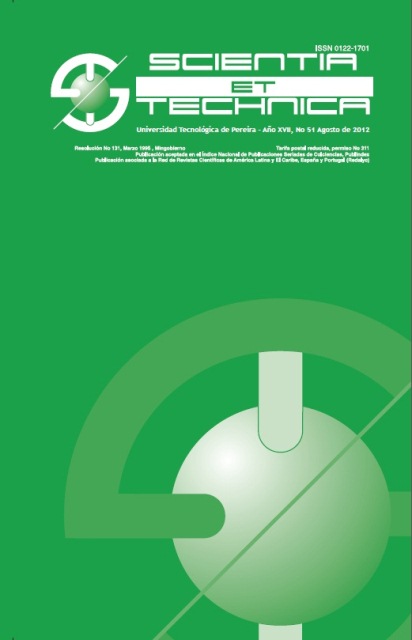Desarrollo dirigido por modelos para la creación de laboratorios virtuales
DOI:
https://doi.org/10.22517/23447214.6663Keywords:
Objeto de aprendizaje, estándar, metamodelo, modelo, transformación, código.Abstract
Los laboratorios virtuales apoyan y promueven el aprendizaje de los estudiantes y aumentan las opciones de experimentos disponibles en las instituciones educativas. A pesar de las ventajas pedagógicas que tienen los laboratorios virtuales, se ha identificado que estas herramientas no cumplen con una estandarización que permita su interoperabilidad, reutilización y accesibilidad. Esto ocasiona, entre otras cosas, la creación de aplicaciones no reutilizables y la inversión en tiempo y costo que esto supone. Como una posible solución a los problemas mencionados, se propone la utilización del desarrollo dirigido por modelos para generar laboratorios virtuales que puedan ser empaquetados en el estándar SCORM (Sharable Content Object Reference Model) y de esta forma, estar disponibles para su uso en sistemas de gestión de aprendizaje.
En el caso de estudio, se define por una parte, un conjunto de metamodelos que muestran la estructura y funcionalidades genéricas de los laboratorios virtuales, y por otra parte, una serie de transformaciones de esos modelos a código para que sean interoperables con el estándar SCORM. Esta aproximación inicial, permite elevar el nivel de abstracción y reutilización, ya que los laboratorios virtuales deben tener la capacidad de ser usados en diferentes contextos y propósitos educativos, reduciendo significativamente el tiempo y esfuerzo en su construcción.
Downloads
Downloads
-
Vistas(Views): 515
- PDF (Español (España)) Descargas(Downloads): 456
Published
How to Cite
Issue
Section
License
Copyrights
The journal is free open access. The papers are published under the Creative Commons Attribution / Attribution-NonCommercial-NoDerivatives 4.0 International - CC BY-NC-ND 4.0 license. For this reason, the author or authors of a manuscript accepted for publication will yield all the economic rights to the Universidad Tecnológica of Pereira free of charge, taking into account the following:
In the event that the submitted manuscript is accepted for publication, the authors must grant permission to the journal, in unlimited time, to reproduce, to edit, distribute, exhibit and publish anywhere, either by means printed, electronic, databases, repositories, optical discs, Internet or any other required medium. In all cases, the journal preserves the obligation to respect, the moral rights of the authors, contained in article 30 of Law 23 of 1982 of the Government Colombian.
The transferors using ASSIGNMENT OF PATRIMONIAL RIGHTS letter declare that all the material that is part of the article is entirely free of copyright. Therefore, the authors are responsible for any litigation or related claim to intellectual property rights. They exonerate of all responsibility to the Universidad Tecnológica of Pereira (publishing entity) and the Scientia et Technica journal. Likewise, the authors accept that the work presented will be distributed in free open access, safeguarding copyright under the Creative Commons Attribution / Recognition-NonCommercial-NoDerivatives 4.0 International - https://creativecommons.org/licenses/by-nc-nd/4.0/deed.es license.



